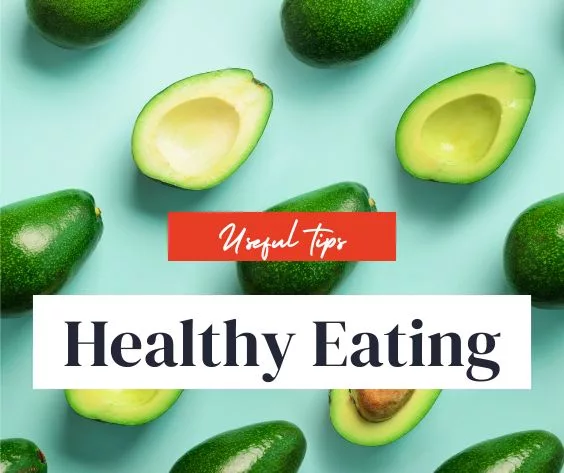Nutritional Needs for Seniors: A Comprehensive Guide to Eating Well in Your Golden Years
Table of Contents
Introduction
Nutritional Needs for Seniors are not just about eating your greens; it’s a whole lifestyle change! Welcome, all you fabulous folks who’ve earned the right to call yourselves “seasoned citizens.” Nutrition isn’t just for the young; it’s for the young at heart too!
A balanced diet can significantly improve your quality of life, especially during those golden retirement years. So let’s dig in, shall we? And I mean that literally—grab a fork!
The Importance of Nutrition in Elderly Life
Let’s get one thing straight: Nutrition is not just for bodybuilders and Instagram influencers. It plays a crucial role in maintaining your health, energy levels, and overall well-being, especially as you age.
Proper nutrition can help manage chronic diseases, improve mental acuteness, and even give you the energy to spend quality time with the grandkids—or chase them away when you need a nap!
What Foods Should Elderly Avoid and Why
Alright, let’s talk about the no-no list. High-sodium foods? Say goodbye to those salty chips. Sugary snacks? Sorry, but those donuts have got to go. And let’s not even talk about processed meats.
These foods can lead to a host of health issues, from high blood pressure to diabetes. So, as tempting as they are, it’s best to steer clear.
Diet Plan for Old Age Above 65: A Sample Menu
If you’re above 65 and wondering what a balanced diet looks like, here’s a sample menu for you:
- Breakfast: Oatmeal with fresh berries and a sprinkle of chia seeds.
- Lunch: Grilled chicken salad with a variety of veggies.
- Dinner: Baked salmon with a side of steamed broccoli and quinoa.
See? Eating healthy doesn’t mean you have to sacrifice taste!
Senior Nutrition: Vitamins and Supplements
Vitamins and supplements can be your best friends as you age. Calcium for those bones, Vitamin D for that sunshine you’re not getting because you’re binge-watching your favorite shows, and Omega-3s for that brain health.
But remember, these should complement your diet, not replace it. Always consult your healthcare provider before starting any new supplements.
Healthy Diet: Tips for Eating Right
Eating right is not rocket science, but it does require some planning. Portion control is key—your stomach is not a bottomless pit, despite what you might think.
Meal planning can also go a long way in maintaining a balanced diet. And hey, why not make it a family affair? Teach the grandkids to make a healthy dish; it’s a win-win!
The Financial Side of Senior Nutrition
Let’s talk dollars and cents. Eating healthy doesn’t have to burn a hole in your pocket. Fresh produce, lean meats, and whole grains can be budget-friendly if you know where to shop.
And if you’ve got a knack for nutrition, why not share your wisdom? Starting a blog these days is as easy as pie, and with the AI tools available in 2023, you could even make some extra cash!
Conclusion
So there you have it, your ultimate guide to Nutritional Needs for Seniors. It’s not just about what you eat but how you eat it. A balanced diet can redefine your retirement, turning your golden years into platinum ones!
So go ahead, take that first step—literally and figuratively—and let’s get munching!
Frequently Asked Questions
Is organic food worth the extra cost?
It can be, especially for certain produce known to have higher pesticide levels. But it’s not a must.
Can I drink alcohol?
In moderation, a glass of wine can even have health benefits. But don’t go overboard!
What about caffeine?
A cup of coffee is fine, but too much can interfere with sleep and raise blood pressure.
How much water should I drink?
Aim for 8 cups a day, more if you’re active.
Is organic food really worth the extra cost?
Organic food can be beneficial, especially for fruits and vegetables that are known to have higher pesticide levels.
However, it’s not a must. If budget is a concern, you can opt for non-organic options for produce with thicker skins, like bananas and oranges.
Can I still enjoy a glass of wine or a beer?
In moderation, a glass of wine or a beer can even have some health benefits, such as improved cardiovascular health. But moderation is key—excessive drinking can lead to a host of health problems.
Q: What about caffeine? Is it a no-go?
A cup or two of coffee is generally fine and can even have some health benefits. However, excessive caffeine can interfere with sleep and raise blood pressure, so it’s best to limit your intake.
How much water should I be drinking daily?
The general recommendation is to aim for at least 8 cups of water a day. If you’re active or live in a hot climate, you may need more to stay hydrated.
Are there any foods that can help improve memory?
Foods rich in antioxidants, good fats, vitamins, and minerals provide energy and aid in protecting against brain diseases.
Consuming nutrient-rich foods may also help to improve brain function and enhance memory.
Do I need to take a multivitamin?
While a balanced diet should provide you with all the nutrients you need, some seniors opt for a multivitamin as a sort of “insurance policy.” However, it’s essential to consult your healthcare provider before starting any new supplements.
What are some easy-to-digest foods for seniors?
Foods like rice, bananas, and lean meats are generally easier on the digestive system. If you have specific digestive issues, it’s best to consult your healthcare provider for personalized advice.
How can I add more fiber to my diet?
Whole grains, fruits, vegetables, and legumes are excellent sources of fiber. Incorporating these into your meals can help improve digestion and overall health.
Is it okay to skip meals?
Skipping meals is generally not recommended, especially for seniors. It can lead to nutrient deficiencies and low energy levels. Try to eat small, balanced meals throughout the day.
How do I manage my weight as I age?
Weight management involves a combination of a balanced diet and regular exercise. If you’re struggling with weight issues, consult your healthcare provider for a tailored plan that meets your needs.
Can I still eat out and maintain a healthy diet?
Absolutely! Just opt for healthier choices on the menu, like grilled instead of fried foods, and don’t be shy about asking for substitutions or smaller portions.




